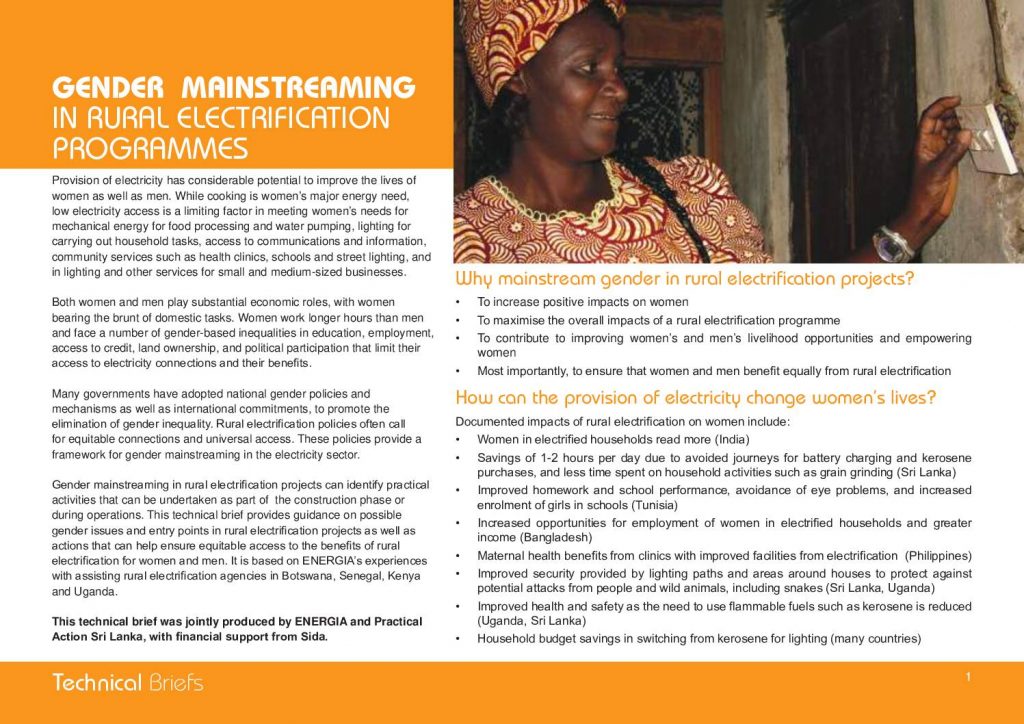Provision of electricity has considerable potential to improve the lives of women as well as men. While cooking is women’s major energy need, low electricity access is a limiting factor in meeting women’s needs for mechanical energy for food processing and water pumping, lighting for carrying out household tasks, access to communications and information, community services such as health clinics, schools and street lighting, and in lighting and other services for small and medium-sized businesses.
Both women and men play substantial economic roles, with women bearing the brunt of domestic tasks. Women work longer hours than men and face a number of gender-based inequalities in education, employment, access to credit, land ownership, and political participation that limit their access to electricity connections and their benefits.
Many governments have adopted national gender policies and mechanisms as well as international commitments, to promote the elimination of gender inequality. Rural electrification policies often call for equitable connections and universal access. These policies provide a framework for gender mainstreaming in the electricity sector.
Gender mainstreaming in rural electrification projects can identify practical activities that can be undertaken as part of the construction phase or during operations. This technical brief provides guidance on possible gender issues and entry points in rural electrification projects as well as actions that can help ensure equitable access to the benefits of rural electrification for women and men. It is based on ENERGIA’s experiences with assisting rural electrification agencies in Botswana, Senegal, Kenya and Uganda.
This technical brief was jointly produced by ENERGIA and Practical Action Sri Lanka, with financial support from Sida.

Follow us on: